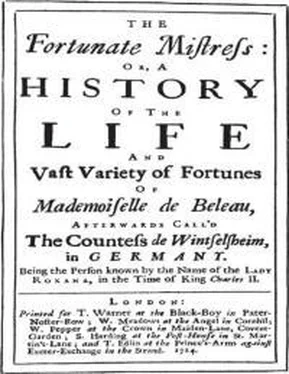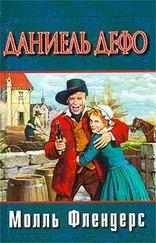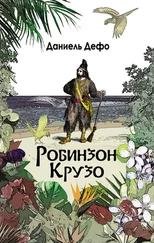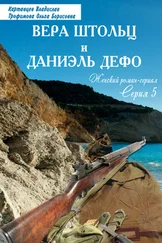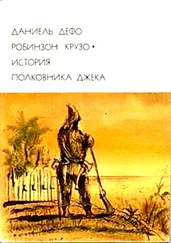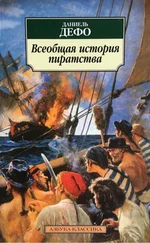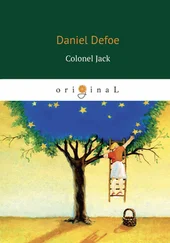McMaster University
D. B.
The History of this Beautiful Lady, is to speak for itself: If it is not as Beautiful as the Lady herself is reported to be; if it is not as diverting as the Reader can desire, and much more than he can reasonably expect; and if all the most diverting Parts of it are not adapted to the Instruction and Improvement of the Reader, the Relator says, it must be from the Defect of his Performance; dressing up the Story in worse Cloaths than the Lady, whose Words he speaks, prepared it for the World .
He takes the Liberty to say, That this Story differs from most of the Modern Performances of this Kind, tho’ some of them have met with a very good Reception in the World : I say, It differs from them in this Great and Essential Article , Namely, That the Foundation of This is laid in Truth of Fact; and so the Work is not a Story, but a History . [8] not a Story, but a History : Although ‘History’ was used of any narration true or imaginary, here the writer is distinguishing between a narrative of fact and a ‘Story’, which Samuel Johnson in his Dictionary defines as ‘an idle or trifling tale’.
The Scene is laid so near the Place where the Main Part of it was transacted, that it was necessary to conceal Names and Persons; lest what cannot be yet entirely forgot in that Part of the Town, shou’d be remember’d, and the Facts trac’d back too plainly, by the many People yet living, who wou’d know the Persons by the Particulars .
It is not always necessary that the Names of Persons shou’d be discover’d, [9] discover’d : revealed.
tho’ the History may be many Ways useful; and if we shou’d be always oblig’d to name the Persons, or not to relate the Story, the Consequence might be only this, That many a pleasant and delightful History wou’d be Buried in the Dark, and the World be depriv’d both of the Pleasure and the Profit of it .
The Writer says, He was particularly acquainted with this Lady’s First Husband , the Brewer, and with his Father; and also, with his Bad Circumstances; and knows that first Part of the Story to be Truth .
This may, he hopes, be a Pledge for the Credit of the rest, tho’ the Latter Part of her History lay Abroad, and cou’d not so well be vouch’d as the First; yet, as she has told it herself, we have the less Reason to question the Truth of that Part also .
In the Manner she has told the Story, it is evident she does not insist upon her Justification in any one Part of it; much less does she recommend her Conduct, or indeed, any Part of it, except her Repentance to our Imitation: On the contrary, she makes frequent Excursions, [10] Excursions : digressions, additional comments.
in a just censuring and condemning her own Practice: How often does she reproach herself in the most passionate Manner; and guide us to just Reflections in the like Cases ?
It is true, She met with unexpected Success in all her wicked Courses; but even in the highest Elevations of her Prosperity, she makes frequent Acknowledgments, That the Pleasure of her Wickedness was not worth the Repentance; and that all the Satisfaction she had, all the Joy in the View of her Prosperity, no, nor all the Wealth she rowl’d in; the Gayety of her Appearance; the Equipages, [11] Equipages : coaches and footmen.
and the Honours, she was attended with, cou’d quiet her Mind, abate the Reproaches of her Conscience, or procure her an Hour’s Sleep, when just Reflections kept her waking .
The Noble Inferences that are drawn from this one Part, are worth all the rest of the Story; and abundantly justifie (as they are the profess’d Design of) the Publication .
If there are Parts in her Story, which being oblig’d to relate a. wicked Action, seem to describe it too plainly , the Writer says, all imaginable Care has been taken to keep clear of Indecencies, and immodest Expressions; and ‘tis hop’d you will find nothing to prompt a vicious Mind, but every-where much to discourage and expose it .
Scenes of Crime can scarce be represented in such a Manner, but some may make a Criminal Use of them; but when Vice is painted in its Low-priz’d Colours, ‘tis not to make People in love with it, but to expose it; and if the Reader makes a wrong Use of the Figures, the Wickedness is his own .
In the mean time, the Advantages of the present Work are so great, and the Virtuous Reader has room for so much Improvement, that we make no Question, the Story, however meanly told, will find a Passage to his best Hours; and be read both with Profit and Delight. [12] Profit and Delight : The idea that the end of poetry – and by extension creative writing – is to inform and delight had become a critical commonplace. It received its classic formulation in Horace’s Ars poetica .
THE
FORTUNATE MISTRESS:
OR,
A HISTORY
OF
THE LIFE, &C.
I Was BORN, as my Friends told me , at the City of POICTIERS, in the Province, or County of POICTOU, in France , from whence I was brought to England by my Parents, who fled for their Religion about the Year 1683, when the Protestants were Banish’d from France [13] the Protestants were Banish’d from France : The Edict of Nantes (1598), granting religious liberty to French Protestants, was not revoked until 1685, but systematic persecution began about 1660 and was stepped up in 1681. The persecutions were particularly severe in the heavily Protestant province of Poitou, where the Marquis de Louvois, Louis XIV’s war minister, first introduced the dragonnades (billeting of unruly dragoons) in Protestant households. In 1681 Charles II, in response to public opinion, signed a Bill granting privileges to French Protestant refugees who sought asylum in England.
by the Cruelty of their Persecutors.
I, who knew little or nothing of what I was brought over hither for, was well-enough pleas’d with being here; London , a large and gay City took with me mighty well, who, from my being a Child, lov’d a Crowd, and to see a great-many fine Folks.
I retain’d nothing of France , but the Language: My Father and Mother being People of better Fashion, than ordinarily the People call’d REFUGEES at that Time were; and having fled early, while it was easie to secure their Effects, had, before their coming over, remitted considerable Sums of Money, or, as I remember , a considerable Value in French Brandy, Paper, and other Goods; and these selling very much to Advantage here, my Father was in very good Circumstances at his coming over, so that he was far from applying to the rest of our Nation that were here, for Countenance and Relief: On the contrary, he had his Door continually throng’d with miserable Objects of the poor starving Creatures, who at that Time fled hither for Shelter, on Account of Conscience, or something else . [14] or something else : The attitude of Roxana and her father towards the refugees – that they were undeserving financial opportunists – is utterly out of line with Defoe’s own attitude. In The True-Born Englishman (1701) and elsewhere he vehemently defends immigration on the ground that the strength and prosperity of the country depends on the number of its inhabitants.
I have indeed, heard my Father say, That he was pester’d with a great-many of those, who, for any Religion they had , might e’en have stay’d where they were, but who flock’d over hither in Droves, for what they call in English , a Livelihood; hearing with what Open Arms the REFUGEES were receiv’d in England , and how they fell readily into Business, being, by the charitable Assistance of the People in London , encourag’d to Work in their Manufactures, in Spittle-Fields , [15] Spittle-Fields : originally open fields in the east of London belonging to the Priory and Hospital of St Mary Spital and by Defoe’s day a built-up area, well-known as a major centre of cloth manufacture. At the time of the revocation of the Edict of Nantes there was a considerable influx of French emigrants, who established silk weaving there.
Canterbury , [16] Canterbury : Like Spitalfields, Canterbury was a cloth-weaving centre which received a large number of French Protestant refugees, especially around 1685.
and other Places; and that they had a much better Price for their Work, than in France, and the like .
Читать дальше
